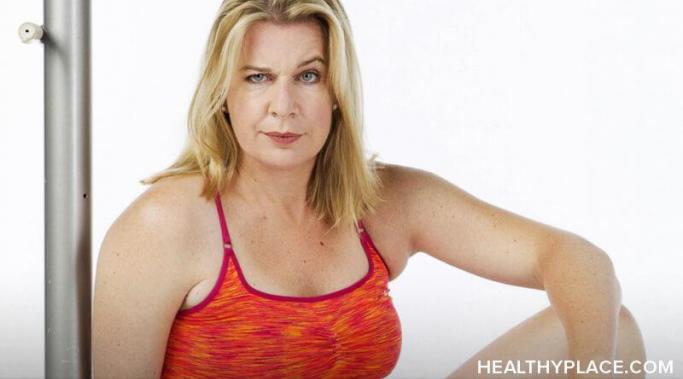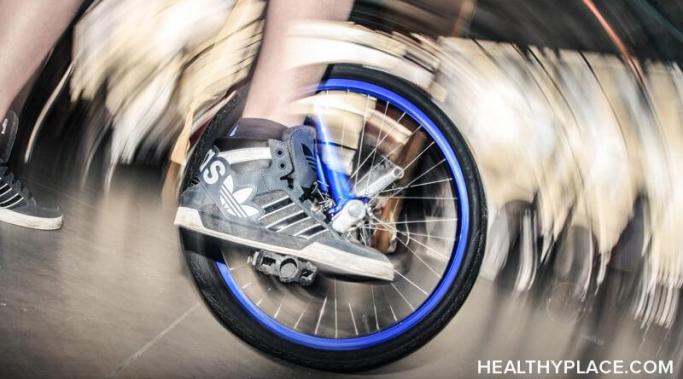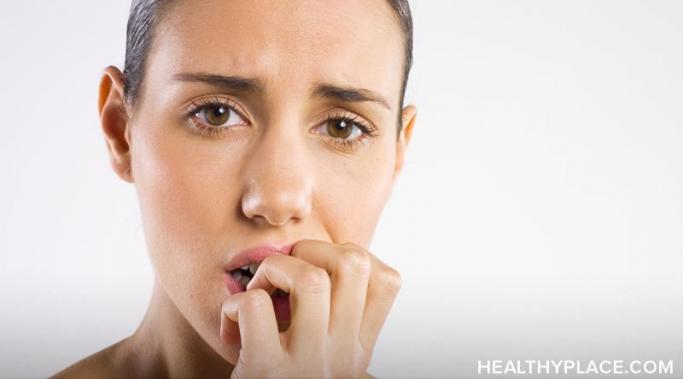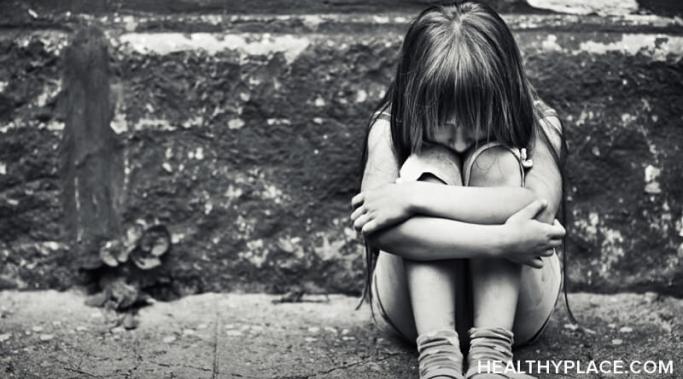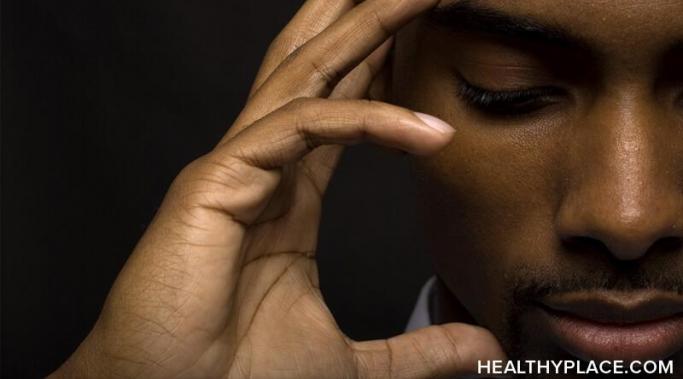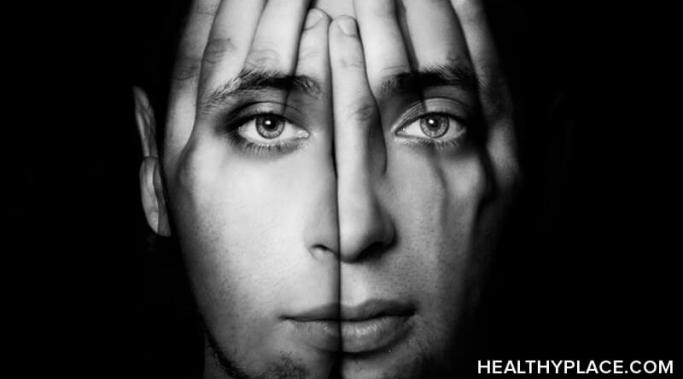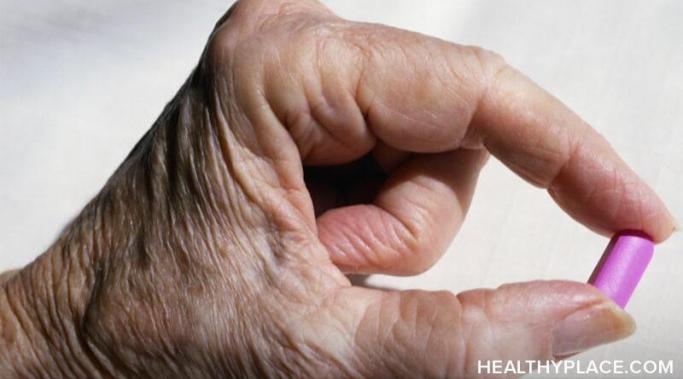My medications for schizoaffective disorder cause a lot of weight gain, as readers of this blog well know. So, when I developed osteoarthritis in my knees at age 42, I started going to a nutritionist. I wanted to lose weight to take pressure off my knees. After a while, my nutritionist put me on a popular medication to support weight loss. At first, it was working really well. But then terrible side effects set in, including unbearable nausea, so I had to stop taking it.
Schizophrenia Symptoms
In my experience, the worst part of schizophrenia is having episodes of psychosis. Losing touch with reality can be terrifying. For me, psychosis always involves hearing voices, delusions, and paranoia. I usually stop eating, which most likely makes the symptoms more severe. Complicating my experience with psychosis is a symptom called anosognosia.
It helps to know the difference between paranoia and anxiety. If I am experiencing paranoia, it involves delusions like someone is out to get me (suspicion and distrust) or has betrayed me. I frequently battle the delusion that someone is poisoning my food. My paranoia can cause anxiety, but the two do not have to be present together. My anxiety attacks often have ties to worry (like health concerns, the health of a loved one, public speaking, etc.), but not always. I can have an anxiety attack where I can't identify a triggering cause.
I was diagnosed with schizoaffective disorder, bipolar type, in 2002 (after a diagnosis of schizophrenia in 1999). But the anxiety that so often accompanies bipolar disorder and schizoaffective disorder has been with me since early childhood.
Psychosis (the presence of hallucinations and/or delusions) and anxiety can be difficult to deal with in relationships. Many symptoms can be confusing, frustrating, and challenging to those looking from the outside. When I have had breaks from reality (psychotic episodes), I have always treated my family and my spouse with suspicion due to paranoia. The paranoia often causes me to think that I am in danger around those who are the most supportive of me.
I haven’t heard schizoaffective voices in over a year, but when I used to hear them, I encountered a lot of stigma and became reluctant to mention them. Much of it was self-stigma, in that I wouldn’t talk about them to the people around me unless they were people I trusted and who knew already that I heard voices. But, the thing is, I was correct in not revealing, say, at work when I heard voices, as there is both stigma and self-stigma involved.
It seems like I am always learning something new about schizophrenia and its symptoms. I learn from my relationships with people with the illness and from following social media accounts of people with schizophrenia or schizoaffective disorder. I also get new information from my doctor and other psychiatrists who write about schizophrenia symptoms and the latest treatments.
When I was a young woman, before my first psychotic episode, I was incredibly independent. I frequently traveled internationally to Egypt and Brazil to visit my parents, who worked overseas. I also took road trips from Seattle to as far as San Diego by myself. Those days of independence are long gone. As someone with a severe mental illness, I need to connect and rely on people more than I ever imagined, but though I have schizophrenia, I am not a burden.
One of my favorite memes on social media says something like, “It’s almost time for me to put away my normal anxiety and put on my fancy Christmas anxiety.” Christmas is a very anxious--even manic--time of year for many people. But I have a special reason why my anxiety skyrockets around the holidays.
When talking about paranoid schizophrenia, we must remember that everyone has a different experience with the illness. Some people live with few or no symptoms of paranoid schizophrenia, while others live with significant symptoms. I had one period in my life where I lived symptom-free for almost a decade. During that time, I held a full-time job, completed training programs, was involved in hobbies, and was more independent than at any other period in my life. But I haven't had a day entirely symptom-free in the past 10 years.
